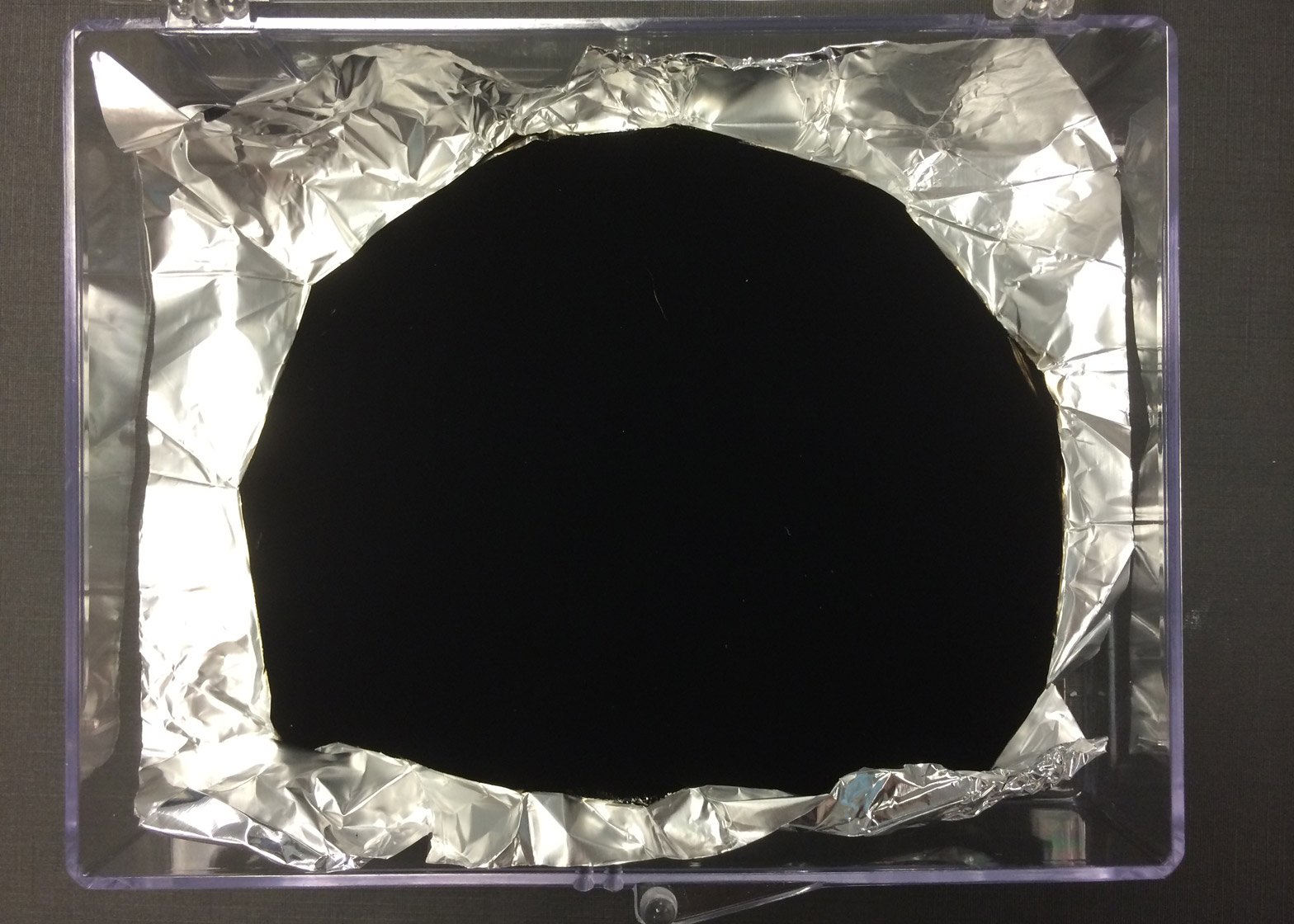Indian-born British artist Anish Kapoor has acquired exclusive rights to the revolutionary Vantablack pigment, said to be the blackest shade of black ever created.
Kapoor – who designed the Orbit tower for the London Olympics – is currently the only person in the world who can paint using this colour, and has been doing so since 2014.
Developed by British company NanoSystems, Vantablack is composed of a series of microscopic vertical tubes. When light strikes Vantablack, it becomes trapped instead of bouncing off and is continually deflected between the tubes.
The pigment is currently the blackest substance known – so dark that it absorbs 99.96 per cent of light.
Although originally developed for military purposes and astronomy equipment, NanoSystems has confirmed to the Guardian that Kapoor alone can paint using Vantablack.
However this has sparked outrage amongst other artists, including English painter Christian Furr – who told the Mail on Sunday that he felt Kapoor was "monopolising the material".
"I've never heard of an artist monopolising a material. Using pure black in an artwork grounds it," he said. "All the best artists have had a thing for pure black – Turner, Manet, Goya. This black is like dynamite in the art world."
"We should be able to use it – it isn't right that it belongs to one man," he added.
Although he didn't discuss his ownership of the pigment, Kapoor explained its distinctive properties on BBC Radio 4's Today programme.
"It's effectively like a paint, it's so black you almost can't see it," he said. "It has a kind of unreal quality and I've always been drawn to rather exotic materials because of what they make you feel."
This is not the first time an artist has claimed exclusive ownership of a particular colour. In 1960, French artist Yves Klein patented a deep shade of a matt blue, subsequently named International Klein Blue (IKB).
Since Klein died in 1962, the colour has been used by Derek Jarman used in his film Blue, and by performance artists The Blue Man Group.
Anish Kapoor was born in India in 1954, and came to Britain in the 1970s. His previous works include a series of womb-like orbs in the Paris' Grand Palais, and an inflatable mobile concert hall for earthquake-affected areas.

